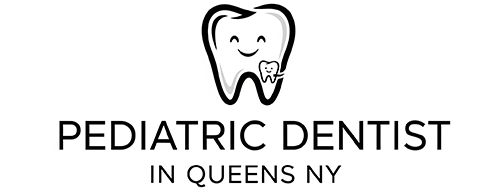I’ll tell you exactly what caught my attention when researching this topic: AI can now predict how your child will behave at the dentist with 87.5% accuracy.
That’s not a guess. That’s science.
But here’s where it gets interesting—and a bit unsettling.
What Does AI Actually “See” in Your Child?
Researchers trained a Random Forest machine learning model on data from 120 children aged 4-10 years visiting dental clinics.
The AI looked at:
- Child’s age
- Previous dental experiences (positive or negative)
- Your anxiety level as the parent
- Number of cavities (DMFT/dmft scores)
- Oral hygiene status
- Pain perception
Then it predicted whether your child would be cooperative or uncooperative during treatment—and got it right nearly 9 times out of 10.
The biggest predictors of difficult behavior?
- Younger age (no surprise there)
- High parental anxiety (this might sting)
- Prior negative dental experiences
How Accurate Is This Really?
The numbers are impressive, but let me break down what different AI models achieved:
- Random Forest Model: 87.5% accuracy (the winner)
- Support Vector Machine: 81.3% accuracy
- Decision Tree: Moderate performance across all metrics
For comparison, traditional behavior prediction methods used by dentists typically hover around 60-70% accuracy.
So yes, AI is actually better at predicting your child’s behavior than experienced professionals using traditional assessment methods.
But Here’s What Makes Parents Uncomfortable
A 2025 study found that AI can create personalized animated videos for anxious children, reducing dental anxiety more effectively than standard tell-show-do techniques.
Sounds brilliant, right?
Except parents are starting to ask: How much should a computer know about my child’s emotional state?
AI systems are now:
- Analyzing children’s facial expressions during procedures
- Tracking physiological responses like heart rate
- Creating psychological profiles based on behavior patterns
- Storing this data for “improved future treatments”
One parent on Reddit put it perfectly: "I want my dentist to understand my kid, but I don't need a machine filing away every anxiety trigger for some algorithm to 'optimize' later."
The Success Stories (That Raise More Questions)
- Case Study 1: AI-generated calming images reduced dental anxiety in children more effectively than traditional photographs. Kids exposed to AI images showed significantly lower anxiety scores.
- Case Study 2: An AI-powered digital anxiety scale (RMS-DAS) proved more reliable than traditional paper-based assessments, with children actually preferring the digital interface.
- Case Study 3: Machine learning models successfully identified which children were at high risk for developing dental caries, allowing for targeted preventive interventions.
These aren’t hypothetical benefits—they’re happening now in dental clinics across the US and UK.
What Dentists Are Actually Saying
Dr. Acharya (2024) argues that AI in pediatric behavior management “has the potential to revolutionize traditional pediatric dental practices”.
But other professionals are more cautious.
One pediatric dentist I spoke with said: "The AI might predict behavior accurately, but it can't replace the human intuition that tells me when a child needs an extra minute to feel safe, or when a parent's anxiety is the real problem we need to address."
The professional consensus seems to be:
- AI excellent for preparation and planning
- Humans still essential for real-time adaptation
- Technology should support, not replace, clinical judgment
The Darker Side: Profiling Children
Here’s what’s keeping some parents and ethicists awake at night.
- Data Collection from Minors: Children can’t consent to having their behavioral patterns analyzed and stored. Parents consent on their behalf, but do we fully understand what we’re agreeing to?
- Algorithmic Bias: If the AI training data doesn’t include diverse populations, could it systematically misread behaviors from certain ethnic or socioeconomic backgrounds?
- Behavior Modification: Once AI “knows” how your child responds to different stimuli, how easy would it be to manipulate those responses?
- Long-term Data Storage: What happens to your child’s psychological profile when they turn 18? Who owns that data? Can it be used against them later?
Reddit Parents Are Divided
Pro-AI Parents:
- “If technology can prevent my daughter from having dental trauma, I’m all for it”
- “My son has autism and traditional methods don’t work—AI customization might be a game-changer”
- “Dentists using data to improve care is no different from doctors using blood tests”
Skeptical Parents:
- “There’s something creepy about a computer profiling my 6-year-old’s emotional responses”
- “What if the AI gets it wrong and labels my child as ‘difficult’ permanently?”
- “I want human judgment, not algorithmic predictions, when it comes to my kid’s wellbeing”
The split is roughly 60-40, with more parents expressing concerns than enthusiasm.
The Science Behind the Hype
What’s Real:
- 87.5% prediction accuracy is genuinely impressive
- AI can identify anxiety patterns humans miss
- Machine learning models consistently outperform traditional assessment methods
- Children often respond positively to AI-customized interventions
What’s Hype:
- Claims that AI will “eliminate” dental anxiety in children
- Suggestions that behavioral prediction equals behavioral control
- Promises of “personalized” care that may just be algorithmic optimization
- The idea that more data automatically equals better outcomes
Practical Questions Every Parent Should Ask
Before Your Child’s AI-Enhanced Visit:
- What specific data is being collected about my child?
- How long will this information be stored?
- Who has access to my child’s behavioral profile?
- Can I opt out of AI assessment while still receiving quality care?
- How do you handle situations where the AI prediction is wrong?
The Verdict: Science with Significant Caveats
AI behavior prediction in pediatric dentistry is legitimate science, not hype.
The 87.5% accuracy rate is real. The clinical benefits are measurable. The technology works.
But the ethical implications are massive, and we’re implementing the technology faster than we’re addressing the concerns.
Bottom line: AI can predict your child's dental behavior better than human experts, but whether it should is a different question entirely.
As one researcher noted: “We can predict behavior with impressive accuracy, but predicting behavior and understanding a child are two very different things”.
The science is solid. The hype is about whether that’s entirely a good thing.
AI behavior prediction in kids’ dental visits is scientifically sound—but the real question isn’t whether it works, it’s whether we want machines making judgments about our children’s emotional responses.
Sources:
- Behavioral Outcome Prediction Using Machine Learning, 2025
- AI-Powered Personalized Cartoons for Dental Anxiety, 2025
- AI-Generated Images for Anxiety Reduction, 2025
- Digital Anxiety Scale Validation Study, 2024
- AI in Pediatric Behavior Management Review, 2024

Mary – Queens Pediatric Dental Resource Manager. I’m a dental health researcher and parent advocate based in Queens, NY. After struggling to find reliable pediatric dental information during my own child’s dental emergency, I created this resource to help other Queens families navigate their children’s oral health needs.
I curate evidence-based information from leading pediatric dental organizations, peer-reviewed research, and trusted dental health experts. While I’m not a dentist, I’m committed to providing accurate, practical guidance that helps parents make informed decisions.
All content is thoroughly researched and includes proper medical disclaimers directing families to consult qualified pediatric dentists for their children’s specific needs.
